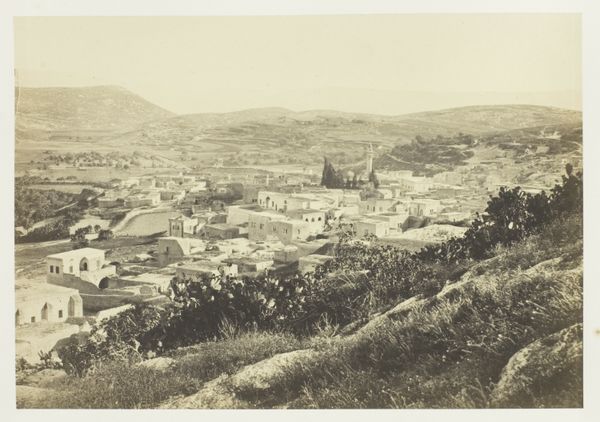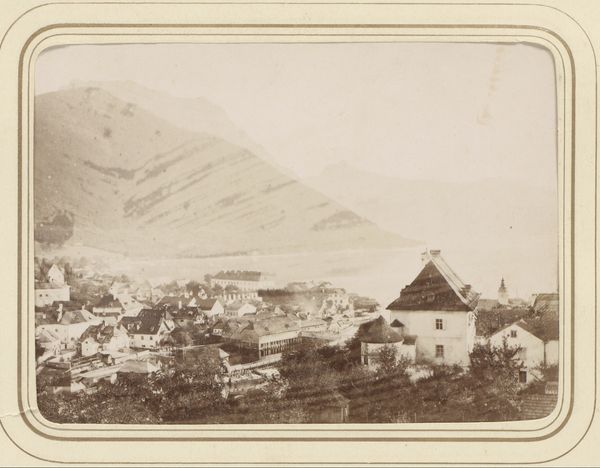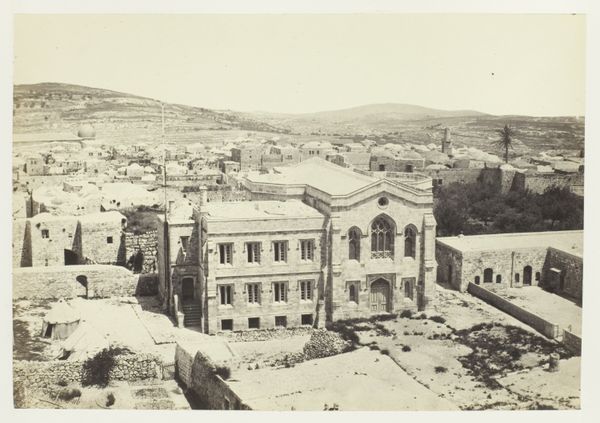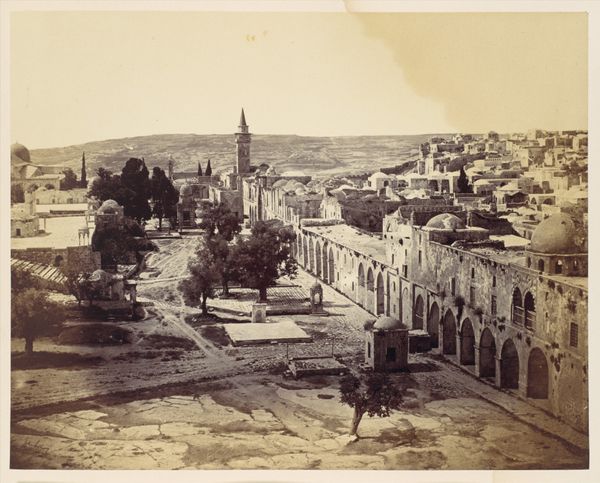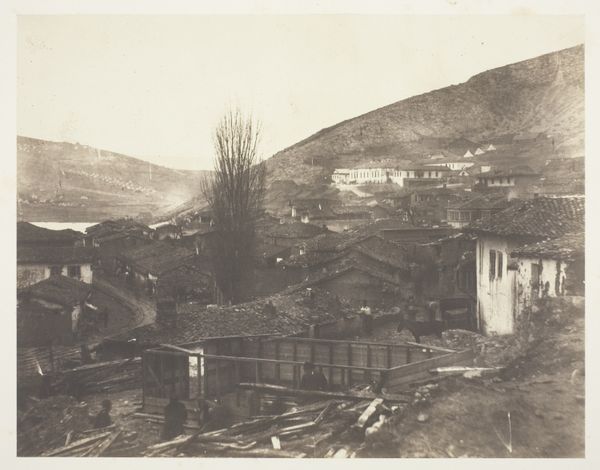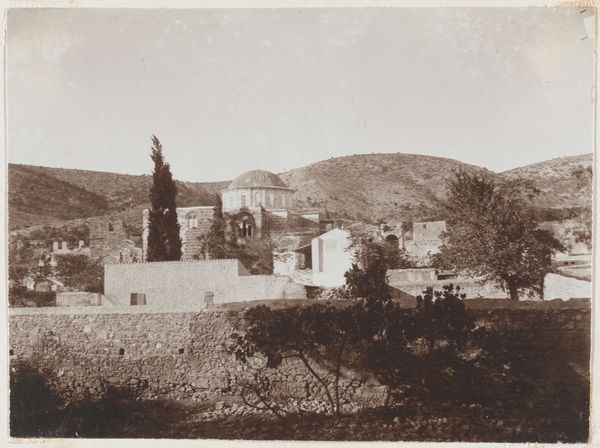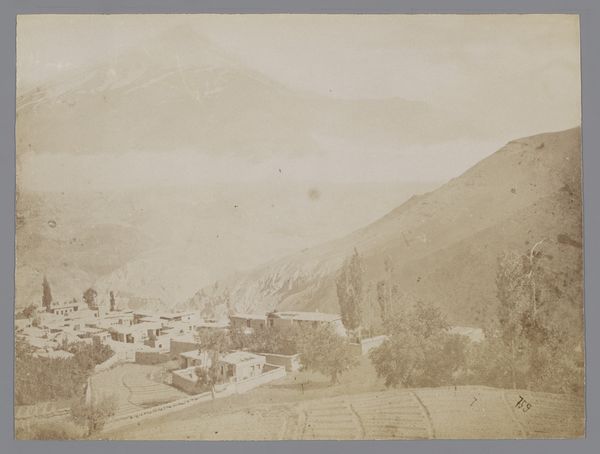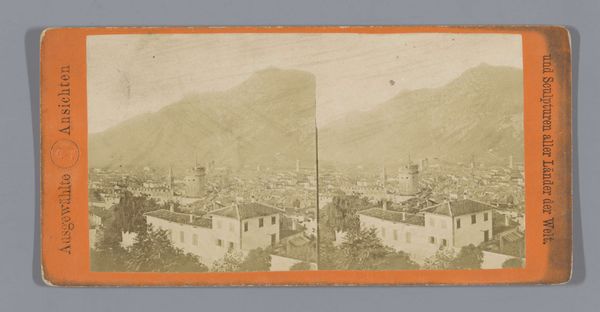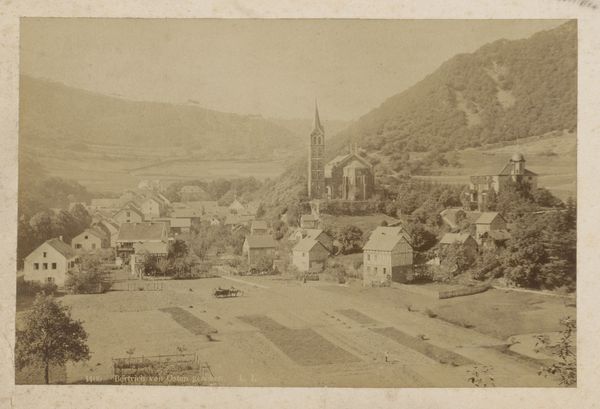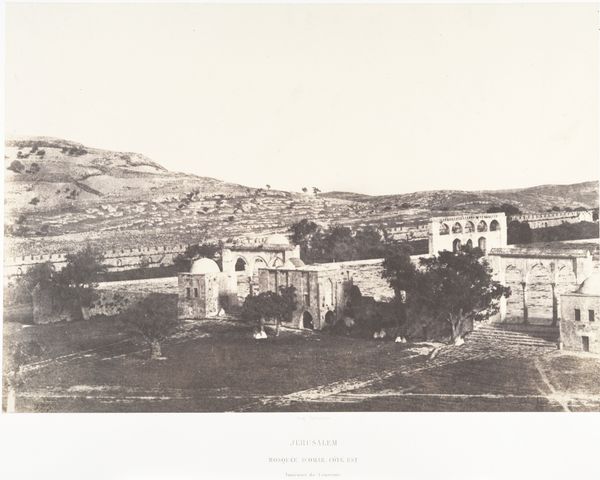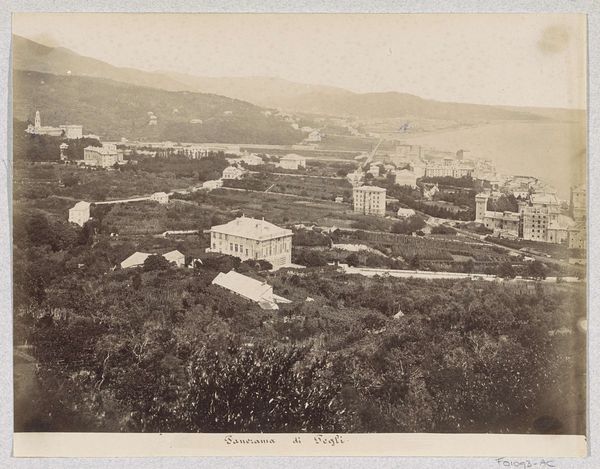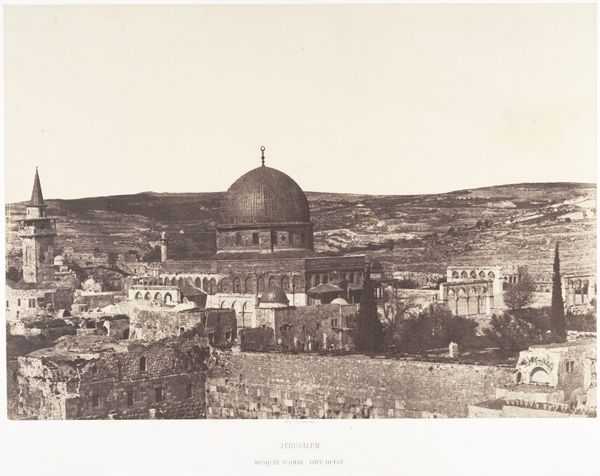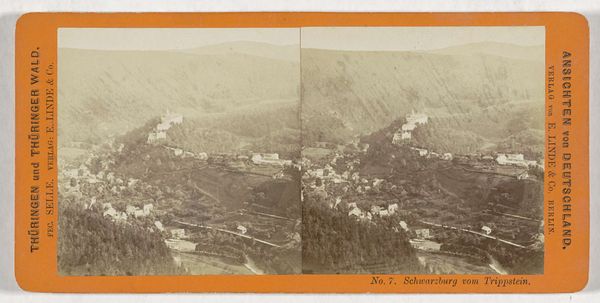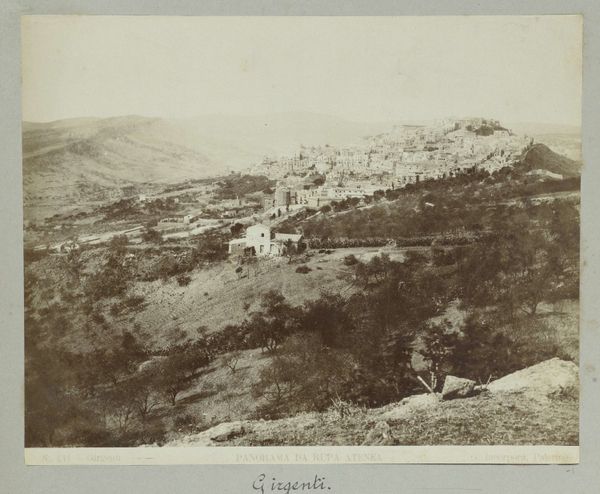
print, paper, photography, gelatin-silver-print
#
16_19th-century
# print
#
pencil sketch
#
war
#
landscape
#
paper
#
photography
#
england
#
gelatin-silver-print
#
cityscape
Dimensions: 29 × 36.5 cm (image/paper); 42.5 × 58.9 cm (mount)
Copyright: Public Domain
Curator: This is Roger Fenton’s "The Russian Church & Town of Balaklava," a gelatin-silver print dating back to 1855, now held in the Art Institute of Chicago. Editor: Bleak, isn’t it? A study in gray, all variations of stone and smoke, like a dream half-remembered. It almost feels devoid of life, despite obviously showing a whole town crammed onto that hillside. Curator: The photograph's composition adheres to a distinct structural organization, wouldn't you agree? Note how Fenton juxtaposes the architectural solidity of the church with the sprawling town, which effectively articulates the relationship between institutional power and civilian life amidst conflict. Editor: Conflict indeed. You can practically taste the tension hanging in the air. That towering church, with its skeletal dome reaching for the sky, seems less like a place of worship and more like a silent observer of the chaos unfolding below. Are those tents pitched in the foreground? There’s something haunting about them. Curator: Precisely, the tents serve as visual markers of the Crimean War. Observe Fenton’s delicate negotiation of light and shadow, how they render depth and underscore the photograph's tonal range. These choices heighten the picture’s emotional impact and historical gravity. Editor: Absolutely, the somber light seems to seep into everything. Even the harbor feels stagnant, choked by those dark hulks of ships huddled together like worried sheep. You get the sense of a place bracing itself, waiting for something terrible to happen. What strikes me most is this tangible silence - a kind of suspended animation right before the storm. Curator: I appreciate your intuitive reading of its emotional tone. It accentuates Fenton’s masterful command over a then nascent photographic technique and his documentary rigor, truly. Editor: Well, I wouldn't want to be around to see that picture move, even now. I’ll never be able to look at this town in a photograph again and not think of Fenton's view.
Comments
No comments
Be the first to comment and join the conversation on the ultimate creative platform.
